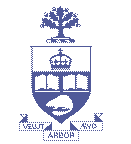Delve Utilities
A Suite of utilities for manipulating Delve datasets, and evaluating method performance in a consistent manner.
Delve UtilitiesA Suite of utilities for manipulating Delve datasets, and evaluating method performance in a consistent manner. |
 |
| Overview | System Requirements |
| Delve Commands | Installation |

To ensure consistent use of the Delve datasets, we supply a suite of utilities for manipulating datasets and evaluating method performance. The utilities allow you to:
![]() get
information about the Delve datasets you have installed on your system.
get
information about the Delve datasets you have installed on your system.![]() get
information about what methods have been run on those datasets.
get
information about what methods have been run on those datasets.![]() extract
training and testing cases from the dataset file so you can run your method on
it.
extract
training and testing cases from the dataset file so you can run your method on
it.![]() calculate
losses given the predictions your method made for the testing data.
calculate
losses given the predictions your method made for the testing data.![]() calculate
summary statistics about its performance, and compare it to other methods.
calculate
summary statistics about its performance, and compare it to other methods.
Before you can use Delve, you must install the utilities.


The Delve utility suite includes ten commands. Generally commands that begin with d act on datasets, while commands beginning with a m have to do with learning methods. For a complete description of their use, see Appendix C of the Delve manual.

The source distribution for the current release of the Delve utility suite is available in a single compressed tar file. To build and install the suite you must first have installed Tcl (Tool Command Language) version 7.3 or higher. For more information on Tcl, you can check out The Santa Cruz Operation database of Tcl/Tk Web pages. It has links to just about everything imaginable on the Web that's related to Tcl or Tk, including mirror sites for the Tcl distribution.
Once you have Tcl installed, you can install the Delve utilities as follows: (This illustrates the steps for version 1.1 of the software. For other version replace 1.1 by the version/patch number)
gunzip delve-1.1p3.tar.gz tar xvf delve-1.1p3.tar
cd delve-1.1 ./configureor, for systems that don't recognize "#!" in shell scripts:
cd delve-1.1 /bin/sh ./configureBy default, the configuration script will set things up to be installed in "/usr/local". You can change this by specifying a different "prefix" in the "configure" command:
./configure --prefix=/your/install/pathYou can also add options for a particular "cc" compiler and compiler flags:
./configure --with-cc=gcc --with-cflags=-gFor a full list of the options "configure" takes, type:
./configure --helpThe "configure" script generates new Makefiles from their respective templates (Makefile.in). If "configure" can't find something, you can make changes to the intermediate "config.status" script, and invoke this script to reconfigure the Makefiles:
vi config.status ./config.statusAs a last resort, you can edit the Makefiles in the current directory and "doc/" by hand and insert the proper paths.
make all
make installIf you have problems with the installation, you can use a subset of the commands:
make install-binaries make install-libraries make install-doc make install-man

 |
 |